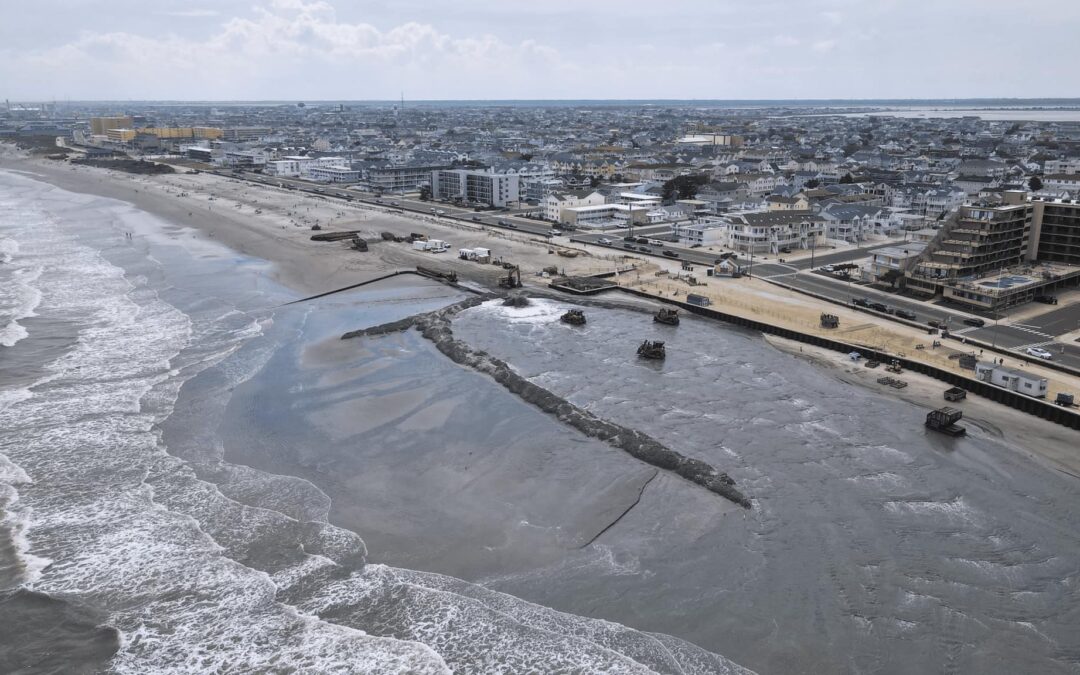Atlantic and Cape May County communities are once again looking to Washington for answers as erosion and storm damage continue to chew away at local beaches.
On Sept. 3, U.S. Rep. Jeff Van Drew (R-2nd Dist.) spoke at a House Transportation and Infrastructure Markup. He articulated support of HR-4669, a bill in the House known as the FEMA Act, which seeks to authorize and improve the Federal Emergency Management Agency while reforming federal disaster mitigation, preparedness, response and recovery.
“For coastal communities like mine in southern New Jersey, this bill is the difference between playing catch up and getting ahead of the storm. The FEMA Act makes pre-disaster mitigation a predictable formula program so communities can plan multi-year beach and dune projects,” Van Drew said. “It would let states pre-approve priorities for fast action after storms … and allow them to combine multiple funding streams with upfront federal payments.”
Van Drew’s statement comes eight days after he held a meeting to discuss long-term beach replenishment funding with mayors from Atlantic, Cape May and Ocean counties, alongside representatives from the U.S. Army Corps of Engineers and the New Jersey Department of Environmental Protection (NJDEP).
The congressman’s goal is to establish a trust fund using revenues from offshore energy leases, saying the current system of year-to-year appropriations leaves shore towns vulnerable.
“Our people shouldn’t have to bear all the costs that happen locally to them. It also cuts red tape by expediting permits and reviews for coastal repairs. And it rewards states that invest in resilience,” Van Drew said. “Healthy beaches and strong dunes are our first line of defense against devastating major storms. It’s called public safety. It’s a real issue. This bill will provide stable funding, faster approvals, and smarter financing, meaning shovels in the sand before the next storm, not after another storm. Preventing disasters, preventing problems.”
He said he’ll be moving forward with his Hot Spot Erosion Mitigation Law, which is already being piloted in Atlantic City to keep sand on the beaches while saving money for local communities.
Van Drew and Congressman Frank Pallone (D-6th Dist.) secured a statewide erosion study — the New Jersey Shore Hot Spot Erosion Mitigation Study — in 2024 to identify trouble spots, protect about $100 billion worth of coastal property and safeguard tens of thousands of jobs tied to tourism.
Beach replenishment funding currently comes through an annual allocation in the congressional energy and water budget. In July, lawmakers set aside $60 million for projects in 2026, while $200 million has typically been needed.
On Sept. 3, the House voted to include beach nourishment money in HR-4553, the Energy and Water Development and Related Agencies Appropriations Act for fiscal year 2026, which funds the Army Corps of Engineers.
However, Pallone criticized Republicans at the session over an appropriations bill that would scale back beach replenishment funding.
“It hurts our constituents by increasing their energy costs, as so many are already seeing huge hikes to their bills. It weakens our national security, and it undermines the critical work that the Army Corps of Engineers does to keep our coastal communities safe,” he said. “Beach replenishment projects or protection projects aren’t luxuries. They’re lifelines. We don’t do them so people can sunbathe. We do them to protect the homes, the businesses and the public infrastructure.”
Both congressmen say recent storms, including Hurricane Erin, show why stable funding is crucial. Dunes washed away in several towns, leaving homes, businesses and public infrastructure more exposed.
For now, towns in Atlantic and Cape May counties are waiting to see how much money, if any, will be carved out for local projects in Congress’ next spending bill.















